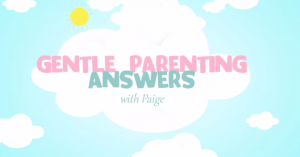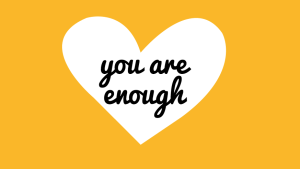Does female privilege exist? Short answer: no.
Privilege is defined as a special right, advantage, or immunity granted or available only to a particular person or group.
In the context of gender – or even the lack of it – it’s only evident that men are born with more engrained advantages in society than any other group within the spectrum, such as better pay, career expectations, larger jurisdiction over their bodies, along with certain questions they just never have to ask themselves.
So if male privilege inherently exists, does female privilege?
When juxtaposed with certain social norms, legal structures, and educational statistics, it seems that women possess certain advantages over men. For example, certain arguments advocating female privilege cite mothers as being more likely to receive custody of children in divorce cases or purport universities as more accepting of women for degree candidates over men.
There are a few reasons as to why such research – while statistically true – doesn’t equate to female privilege.
But before I begin to dismantle these myths, I want to establish that this piece addresses the misconception of female privilege within the cisgender sphere; the lives of transgender women, men, and those who identify as gender non-conforming contain an entirely different set of misinterpretations that justify a separate piece entirely devoted to those issues.
Further, this piece does not intend to suggest that cisgender privilege does not exist. While women do not experience privilege on the grounds of gender alone, cis women do benefit from being cisgender.
The most common misconception of female privilege, as compared to male privilege, is that society dictates women as the beneficiaries of chivalric practices, such as assistance with heavy objects, holding doors open, or even receiving drinks, dinner, and in some cases, expensive jewelry.
While an abundance of chivalry can teeter on overwhelming, most women I know – myself included – definitely enjoy these benefits, just like men enjoy benefits of male privilege.
Yet unlike male privilege, “female privilege” corners women into benefiting from a much smaller, domestic sphere, rather than the system at large.
When people refer to “female privilege,” they’re likely referring to the positive counterpart of a male non-privilege. It’s definitely true that men experience social injustices – nobody’s lives are perfect. But a lot of these non-privileges – such as expecting men to stifle emotions or providing for families – aren’t indicative of female privilege because women are not inherently benefiting from what men are disadvantaged by.
The advantages women are thought to have at the expense of men reflect the patriarchy’s demands for men as competitive, dominant, and authoritative. At the same time, its demands for women are to be submissive, nurturing, and inferior.
And that subjugation of women simply isn’t how privilege – as a social phenomenon – works.
So here are a few myths about female privilege, debunked.
1. Women Receive Chivalry – And Therefore, Free Dinners, Open Doors, and More
Today, we equate chivalry with society’s expectations of a man to go out of his way to pamper a woman. And while this definition of chivalry seems like it’s coming from a good place, the term itself is antiquated.
Chivalry, as defined in The Free Dictionary, is a system of rules originating in the medieval era that dictate qualities expected of a knight, such as honor, courage, and a readiness to help the weak.
What seemed to be a non-discriminatory act of courtesy has narrowed its focus to women throughout the years – which has implications.
But are free drinks and open doors benefitting women in society, as real privileges? They’re not hurting, but they’re not helping either.
The pampering part of chivalry can verge on being unsolicited, which actually means the social constructs women supposedly enjoy are really just positive encouragement for men.
It views women as unequal – either as weaker or placed too high on a pedestal – and men who treat them as such might be expecting to be rewarded for their gentleman-like manners.
The irony rests in how chivalry is begrudgingly considered a female privilege, yet it is men who bestow the act.
Overindulging a woman and then calling it a privilege is basically a serpent eating its own tail. If women truly had a privilege that complemented a man’s, it would be benefitting her in the public and private sphere.
2. Women Are Under No Pressure to Provide for the Family – Unlike Men
It’s no secret that society dictates men to be the primary – if not sole – breadwinners of the (cishetero) household.
Both women and men are working hard to make their mark in the professional world these days and finding what works right for them. More and more, men in relationships are opting to function as homemakers for various instances, whether it be to raise children or to support their partner’s career.
Yet we still see men being ridiculed for their decisions and women having to see the man that they love bogged down by an archaic stereotype.
So are women who aren’t under pressure to provide benefiting at the expense of men? Nope, still no dice.
It turns out the very “privilege” of being apathetic about a career is what hurts career-driven women. The patriarchal expectation of men providing for the family is reciprocated by women caring for the children and household.
And at the risk of a woman taking days off to nurture a child or just deciding to stay home, companies are less likely to hire female candidates. White women still make 77 cents for every dollar a white man makes, despite them making up over half of the workforce.
3. On That Note, If Women Don’t Feel Like Working, They Can Just Marry Rich
Assuming a woman can throw in the towel at a moment’s notice and marry a rich partner is an incredibly sexist assumption.
Not only does it endorse an odd reality in which rich men are available in endless quantities and for marriage on-demand, but it also caters to politics of desire, something not all women can benefit from.
So no, the answer to workplace discrimination or unequal pay isn’t to marry a richer spouse.
4. Women Are Accepted as Emotional Beings
This instance is yet another example of how the patriarchy chastises men for showing signs of weakness – or, in other words, acting like a woman.
The very phrases of “man up” and “take it like a man” may as well just say, “Don’t be like a woman!”
Men are taught from an early age that women are weaker and emotional, and that so much as a teardrop will chip away at masculinity. It’s an unfair burden for men to cage emotions, but it’s also done at the expense of women.
By viewing an open acceptance of women’s emotions as a “privilege,” it only reinforces women as being a lesser gender and placing an inhuman hardship on a very fragile male ego.
5. Women Have a Higher Chance of Getting Accepted into College
The US Census Bureau reported in October that for the first time since 1940, women were more likely than men to have a bachelor’s degree. Universities in 22 states are showing slightly higher enrollment rates for women, while all but five states in the US have either equal or higher enrollment rates for women.
But are women getting accepted into colleges at the expense of men? Not necessarily.
In the past fifty years, women have begun to take over jobs traditionally held by men: doctors, lawyers, engineers, and other specialized career paths that require the successful attainment of a college degree.
At the same time, women are also dominating the fields of jobs traditionally considered “female”: teachers, nurses, administrative assistants, and so on.
In the interest of avoiding these “feminine” career paths, more men are opting out of college altogether, rather than pursue a career that could be seen as emasculating in society.
Elisa Olivieri, PhD, concluded this notion of why women outnumber men in colleges: Jobs seen as “manly” – namely, manual labor jobs – don’t require college degrees. “Feminine” jobs like nursing and teaching, on the other hand, do.
Olivieri calculated that the biggest obstacle keeping men out of college may just be society’s stigma against gendered jobs.
6. Women Are More Likely to Win Child Custody Battles
One of the biggest myths against marriage equality is the same underlying notion behind the myth of women being more likely to win child custody battles: that mothers are absolutely necessary in a child’s development.
Statistics show that women are far more likely to win custody of children in a divorce, yes. But they are also far more likely to ask for it.
In straight marriages, studies have shown that women are far more likely to have spent more time rearing a child – which is not to say that men never contribute. That’s why equally qualified men who fight for custody are, indeed, very likely of receiving either primary or joint custody.
A study conducted in Massachusetts over the span of over five years found that fathers who actually sought custody – though the numbers were significantly smaller than mothers who did – overwhelmingly got, at the very least, joint custody.
It’s not that fathers are less competent parents – and saying so is a harmful patriarchal notion.
7. Men Are More Likely to Die of Suicide
In many Western countries, while women are reported to have more suicidal tendencies than men, men overwhelmingly succeed in their suicide attempts.
The victims of suicide are largely depression victims, and men have been shown to harness drastically different symptoms of depression. Traditional symptoms, such as crying or outright sadness, have been shown to manifest themselves less often in men, largely because of cultural stigmas against men showing emotion.
Meanwhile, some studies cite method as the reason why more men are dying from suicide. Women are more likely to use nonviolent methods of suicide, such as overdosing, while men are more likely to use quick, ensuring methods, such as firearms – which just so happen to be more effective.
Although it’s still unclear as to why men use more deadlier methods to end their lives, it is drastically different to the traditional approaches of women who are suicidal. The culture of toxic masculinity and expectations to preserve characteristics of socially prescribed manliness could be partly to blame.
Asserting that this statistic is evidence of female privilege is false. Because women are not gaining advantage from the higher suicide rates of men – no one is.
***
Just because male privilege exists doesn’t mean its counterpart, “female privilege,” is also present. Women in the United States and around the world continue to face discrimination in all magnitudes and have the system largely pitted against them.
There are certainly women who are more privileged than other women. White women, for example, as earlier cited, earn 77 cents on the comparative dollar, while Latina women only earn 54 cents.
Intersectional feminism is the movement that incorporates the plights of people of all races, bodies, and abilities into the collective conversation on feminism – including men!
No one is saying that men aren’t suffering from systematic injustices against them. They most certainly are. In the examples listed above, there are instances were men are clearly disadvantaged.
The key, though, is that it is rarely, if ever, at the explicit expense of women.
On the other hand, women and their quality of life does suffer at the expense of male privilege.
And that’s the difference.
[do_widget id=’text-101′]
Nikita Redkar is a Contributing Writer for Everyday Feminism. She is a freelance writer in New York City who currently interns for Fusion Network where she writes about diversity in pop culture and how it’s shifting the current landscape of racial and gender politics. When she’s not writing, she is taking classes in sketch comedy and reading bizarre astronomy theories. She likes cute animal gifs and dislikes long walks on the beach, plagues, and other cliches.
Search our 3000+ articles!
Read our articles about:
Our online racial justice training
Used by hundreds of universities, non-profits, and businesses.
Click to learn more





















